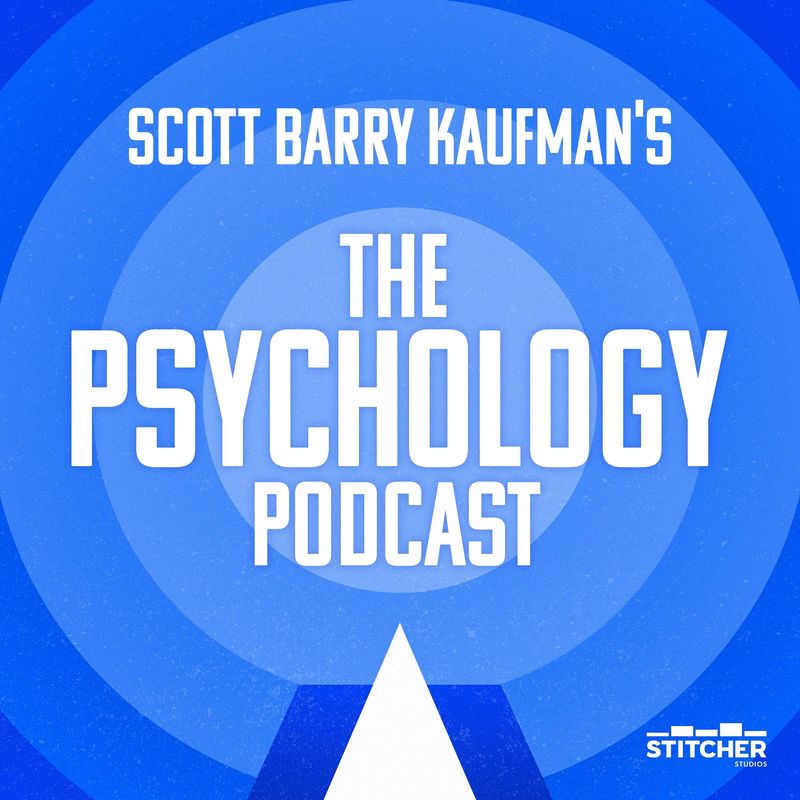
This episode currently has no reviews.
Submit Review- Podcast |
- The Psychology Podcast
- Media Type |
- audio
- Podknife tags |
- Creativity,
- Health,
- Interview,
- Psychology,
- Science & Medicine,
- Self-Help,
- Social Sciences
- Publication Date |
- Jan 16, 2020
- Episode Duration |
- 01:05:04
Today it's great to have Paul Bloom on the podcast. Dr. Bloom is the Brooks and Suzanne Ragen Professor of Psychology and Cognitive Science at Yale University. His research explores how children and adults understand the physical and social world, with special focus on morality, religion, fiction, and art. He is past-president of the Society for Philosophy and Psychology, and co-editor of Behavioral and Brain Sciences, one of the major journals in the field. Dr. Bloom is also author or editor of seven books, including Against Empathy: The Case for Rational Compassion
In this wide-ranging and provocative episode we discuss:
- Paul's graduate research with Steven Pinker
- Is language the result of biological evolution or cultural evolution?
- What "hardwired" really means
- Why innate mechanisms require environmental input
- The necessity of bias
- Some potential downsides of empathy
- The case for rational compassion
- Cognitive empathy vs. affective empathy
- Did Hitler have the capacity for empathy?
- The joy of suffering
- Why do we choose to suffer?
- The fundamental human need for exploration
- The human need to overcome challenges
- Would some people be content watching Netflix and smoking pot all day?
- The relationship between income and happiness
- The importance of spending money well
- The psychology of expectation and pleasure
- If someone offer you more money, should you take it?
- Relief vs. pleasure
- Does enjoying something depend on how much we think we will enjoy something?
- Art and authenticity
- Art and value judgements
- Would Tarzan believe in God?
- Are babies basically good?
- Why religion is so pervasive
- Are babies moral?
- How a powerful moral sense is responsible for an extraordinary amount of evil in the world
- Is moral grandstanding always bad?
- Why not everything is virtue signaling
Support this podcast: https://anchor.fm/the-psychology-podcast/support
Today it's great to have Paul Bloom on the podcast. Dr. Bloom is the Brooks and Suzanne Ragen Professor of Psychology and Cognitive Science at Yale University. His research explores how children and adults understand the physical and social world, with special focus on morality, religion, fiction, and art. He is past-president of the Society for Philosophy and Psychology, and co-editor of Behavioral and Brain Sciences, one of the major journals in the field. Dr. Bloom is also author or editor of seven books, including Against Empathy: The Case for Rational Compassion
In this wide-ranging and provocative episode we discuss:
- Paul's graduate research with Steven Pinker
- Is language the result of biological evolution or cultural evolution?
- What "hardwired" really means
- Why innate mechanisms require environmental input
- The necessity of bias
- Some potential downsides of empathy
- The case for rational compassion
- Cognitive empathy vs. affective empathy
- Did Hitler have the capacity for empathy?
- The joy of suffering
- Why do we choose to suffer?
- The fundamental human need for exploration
- The human need to overcome challenges
- Would some people be content watching Netflix and smoking pot all day?
- The relationship between income and happiness
- The importance of spending money well
- The psychology of expectation and pleasure
- If someone offer you more money, should you take it?
- Relief vs. pleasure
- Does enjoying something depend on how much we think we will enjoy something?
- Art and authenticity
- Art and value judgements
- Would Tarzan believe in God?
- Are babies basically good?
- Why religion is so pervasive
- Are babies moral?
- How a powerful moral sense is responsible for an extraordinary amount of evil in the world
- Is moral grandstanding always bad?
- Why not everything is virtue signaling
Support this podcast: https://anchor.fm/the-psychology-podcast/support
This episode currently has no reviews.
Submit ReviewThis episode could use a review! Have anything to say about it? Share your thoughts using the button below.
Submit Review